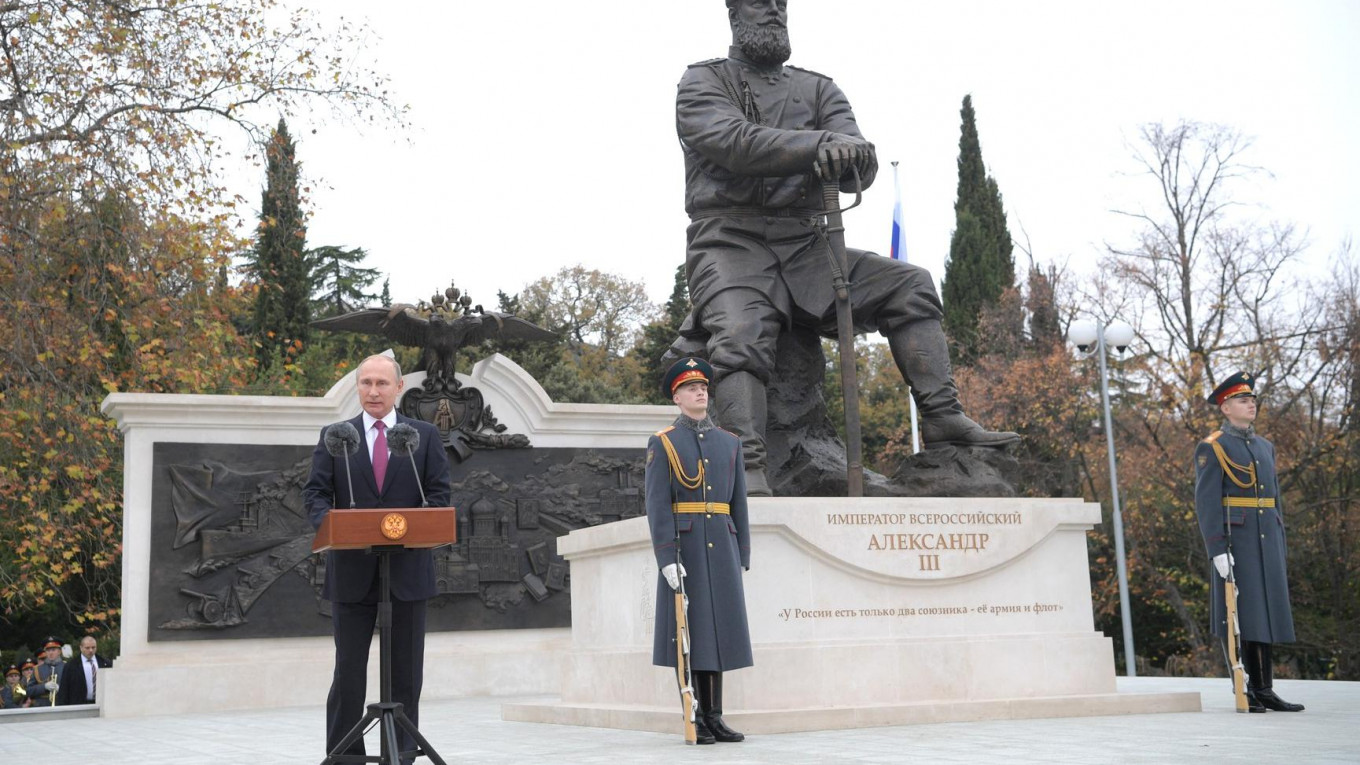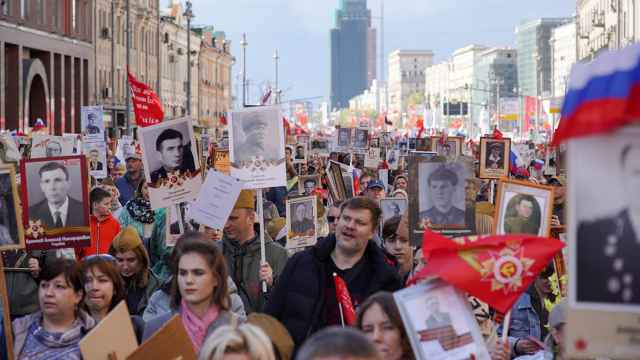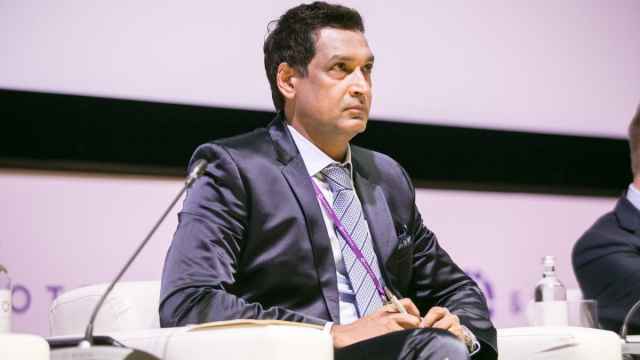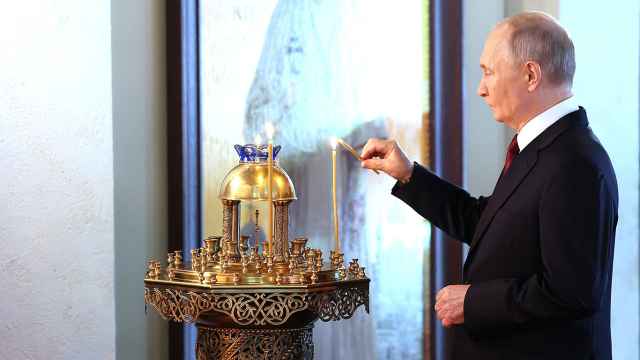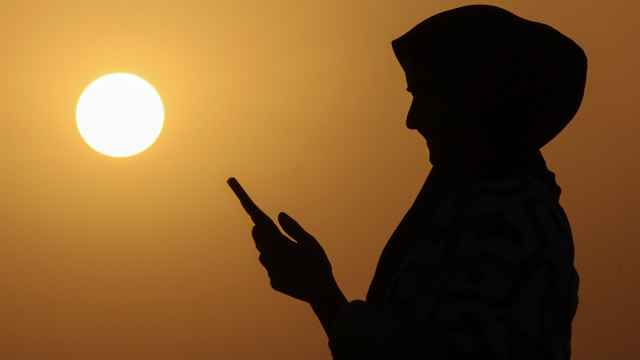For most of his 17-year reign, Russian President Vladimir Putin wasn't much of an ideologue: He focused on the economy and on recentralizing power.
But during his latest term as president, and especially since the 2014 Crimea annexation, Putin has made an effort to create an ideological basis for his newly assertive global stance — and a pantheon of heroes to match. The effort, as has often been the case in Russia, is based on revisionist history.
On Saturday, Putin opened a monument to Tsar Alexander III in Crimea. It's only the latest in a series of bronze symbols of what constitutes Russia's great past according to Putin. Other recent ones include statues of Prince Vladimir in Moscow, Ivan the Terrible in Oryol, submachine gun inventor Mikhail Kalashnikov in Moscow, and Ivan III, the Grand Prince of Moscow until 1505, in Kaluga. The latter two monuments were unveiled by Culture Minister Vladimir Medinsky, who styles himself a historian despite serious doubts about the legitimacy of his doctorate. Medinsky also sent an official address to be read at the Ivan the Terrible opening.
Putin's participation gives Alexander III a special place in the pantheon, next to Prince Vladimir, who, as legend has it, was responsible for the adoption of Christianity by the eastern Slavs he ruled; Putin made a speech at that unveiling, too.
In his speech on Saturday, Putin explained why he likes Russia's next-to-last tsar. He didn't conduct any major wars but was firm with the rest of the world. He did his best "to develop and strengthen the nation, to safeguard it against upheavals, internal and external threats." He "believed a strong, independent state must lean not just on economic and military power but also on tradition."
Putin would clearly like to be remembered as fondly as Grand Duke Alexander Mikhailovich Romanov, Alexander III's cousin, remembered the tsar in his memoirs. After describing the confusion and nervous tension that gripped the Russian elite after socialist terrorists murdered Alexander II, who had abolished serfdom in Russia and liberalized the country, the grand duke thus described the martyred tsar's heir:
Luckily for Russia, Emperor Alexander III possessed all the qualities of a major administrator. A convinced proponent of a healthy national policy, a fan of discipline, possessed besides of a rather skeptical mindset, the sovereign ascended the ancestral throne ready for battle. He knew court life too well not to feel contempt for his father's former aides, and, thanks to a good acquaintance with the rulers of contemporary Europe, he developed a well-grounded mistrust for their intentions. Emperor Alexander III believed that most of Russia's troubles followed from the misplaced liberalism of our officialdom and from the Russian diplomatic service's singular propensity for falling under foreign influences.
Like Alexander III, Putin — who inherited power from Russia's erratic but generally liberal first president, Boris Yeltsin — rolled back the "misplaced liberalism," made mistrust of the West a cornerstone of his policy, sought to appoint technocratic ministers and embarked upon grand projects (Alexander III ordered the construction of the Trans-Siberian railroad). Alexander II, whose contribution to Russian history was much weightier, would have been the wrong hero — not least because of how he died.
But in his search for heroes, Putin doesn't just forget that highlights of Alexander III's rule included the famine of 1891 and 1892, which killed up to 500,000 people and was so ineptly handled that it kept the cruelly suppressed socialist movement alive. He's willing to endorse a version of history in which Alexander III's tenure is falsely presented as a golden age of arts and sciences.
A relief behind the tsar's seated statue in Crimea shows the purported achievements and key figures of the age. Among the figures are Fyodor Dostoevsky, who died before the tsar ascended his throne; Leo Tolstoy, who wrote "War and Peace" and "Anna Karenina" under Alexander II; and Dmitry Mendeleyev, who discovered the periodic system of chemical elements during Alexander II's reign. The monument credits Alexander III with the creation of the country's oldest Russian art museum, the Tretyakov gallery. It actually opened when the future tsar was 11 years old. Even the Trans-Siberian Railway, which also got a mention, wasn't really Alexander III's achievement: It was finished in 1916, more than two decades after he died.
This is typical of the hasty hero-creation of recent years. Putin's newfound worship of Prince Vladimir of Kiev is based on the disputed legend that the pagan prince was baptized in Crimea, which, according to a speech Putin made in 2014, makes the annexed peninsula as sacred to Russians as Jerusalem is to Muslims and Jews. This story skirts the fact that Vladimir ruled the eastern Slavic lands from Kiev, the capital of today's Ukraine, and forgets that he was in Crimea as a ruthless invader.
The sculptor of the Kalashnikov statue in Moscow — Salavat Shcherbakov, who also created the Prince Vladimir statue — was caught in an embarrassing error after the monument was unveiled to the public: A military historian noticed that a relief on the statue's pedestal portrayed drawings of StG 44, an assault rival used by German troops during World War II, rather than Kalashnikov's AK-47.
No wonder Shcherbakov was confused: Kalashnikov, according to some historians, borrowed heavily from the work of the StG 44's designer, Hugo Schmeisser, a German weapons designer who was captured by the Red Army and brought to work in Izhevsk, where Kalashnikov spent most of his life.
After the mistake became public knowledge, Shcherbakov had workers remove the offending part of the relief. But Andrei Kovalchuk, the creator of the Alexander III statue, is unapologetic about the revisionist history his work reflects. "I am certain there are no mistakes and I'm not going to change anything," he told the state-owned agency RIA Novosti. "I have no doubt that everything I created is fully consistent with the Alexander III epoch."
The flawed, clumsy statues — a far cry from the grand style in which the Communists commemorated their heroes — are bronze witnesses of Putin's fevered search for a Russian identity, a historical and cultural framework for what he's done to the country. A cruel warlord from the Dark Ages, a mass murderer who earned the nickname "Terrible," the creator of the modern world's deadliest gun, a czar who helped bring on the Bolshevik revolution with his reactionary intransigence — all of these figures are supposed to define a glorious past and underpin a defiant present.
Perhaps, however, Russians aren't really inclined to associate Putin with these figures. A self-taught sculptor in Astrakhan recently created a bronze image of Putin that fits the frantic eclecticism of his ideological quest. Putin's head is attached to the body of a winged bear clutching a sturgeon in his claws.
No one can point out any errors in this one.
Leonid Bershidsky is a Bloomberg View columnist. He was the founding editor of the Russian business daily Vedomosti and founded the opinion website Slon.ru.
For more columns from Bloomberg View, click here.
The views and opinions expressed in opinion pieces do not necessarily reflect the position of The Moscow Times.
A Message from The Moscow Times:
Dear readers,
We are facing unprecedented challenges. Russia's Prosecutor General's Office has designated The Moscow Times as an "undesirable" organization, criminalizing our work and putting our staff at risk of prosecution. This follows our earlier unjust labeling as a "foreign agent."
These actions are direct attempts to silence independent journalism in Russia. The authorities claim our work "discredits the decisions of the Russian leadership." We see things differently: we strive to provide accurate, unbiased reporting on Russia.
We, the journalists of The Moscow Times, refuse to be silenced. But to continue our work, we need your help.
Your support, no matter how small, makes a world of difference. If you can, please support us monthly starting from just $2. It's quick to set up, and every contribution makes a significant impact.
By supporting The Moscow Times, you're defending open, independent journalism in the face of repression. Thank you for standing with us.
Remind me later.



